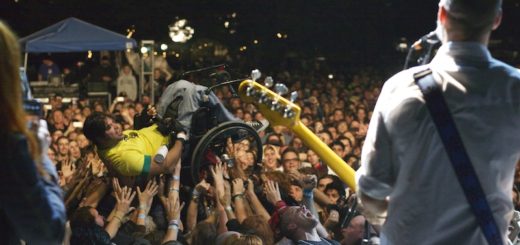Life in Latvia
 Not every American who travels abroad visits this tiny capital, much less gets here two summers in a row. Yet having briefly worked for a newspaper in the region — and having friends in the area — I’ve somehow ended up here more often than expected.
Not every American who travels abroad visits this tiny capital, much less gets here two summers in a row. Yet having briefly worked for a newspaper in the region — and having friends in the area — I’ve somehow ended up here more often than expected.
Since my visit here last summer, Latvia has become a hotspot in the global economic crisis. For the last year I’ve been reading some alarming news coming out of this EU member state. I’ve read about an economy shrinking by 18 percent in the first quarter of 2009. I’ve seen video of rioting in the streets this past winter, then read the subsequent reports about the collapse of the government. Many Latvians have lost at least 15 percent of their salaries, some far more. Latvia is being bailed out with billions from the International Monetary Fund, and there is serious talk of devaluing the local currency, the Lat.
Every time I would read one of these dramatic news stories, I’d email my friends in Riga. They kept telling me that everything was fine, that they were okay, that the crisis hadn’t affected them personally. Yet since they’d both had Soviet childhoods back when Latvia was part of the USSR, I wondered about their definition of”fine.”
Yet, given the amount of coverage I had read about the Latvian economic crisis — and the fact that I had some expiring frequent flier miles — I decided to go investigate what things were like in Riga. Couple that with the opportunity to again attend the Positivus Music Festival with my Latvian friends last month — and it was easy to talk myself into going.
Strolling along Riga’s pretty main boulevards, it’s hard to believe the alarming news about the place. Many of the city’s medieval, Art Nouveau or Soviet buildings have been beautifully renovated following years of communist neglect, while others are still painfully shabby.
Despite the crisis, people here are enjoying their brief summer. The flowers are in bloom, the locals are sitting in the sun texting each other—sometimes on iPhones—and many ice cream carts are selling frozen treats. It doesn’t look like anyone in the city center is starving, or has had their mobile phone disconnected.
In the medieval old town, tourists wonder the streets photographing the old German, Russian, Swedish or Soviet-installed monuments (Latvia has been occupied by many imperial powers). Recently I spotted a Japanese tour group walking through a neighborhood park.
Yet looking more carefully, it’s clear that things have changed in Riga. This year I’ve noticed a lot of empty storefronts in the main shopping areas. Some shops are advertising sales of 70 percent off. According to local sources, reductions this drastic are unheard of here —until now. Restaurants in the tourist areas are often empty, their obvious yearning for traffic made clear by the way their propped-open doors are silently beseeching customers.
In the midst of this widely publicized economic crisis, I was surprised to find that Latvia’s Positivus Music Festival was still scheduled. As I detailed on Austinist.com, I was surprised to find last year’s Positivus Festival highly reminiscent of the Austin City Limits music festival—down to the sweet indie-pop vibe.
Positivus is held in a park in the tiny town of Salacgriva, Latvia—just on the Latvian side of the Latvian/Estonian border. At the festival site, you can swim in the rocky Gulf of Riga, just steps away from pine trees.
This year, if you were backstage— like my friends here — you might be able to get a peck on the head from talented bad boy musician Pete Doherty, or chat with 90’s radio goddess Sinead O’Connor, best known for the song “Nothing Compares to You.”
I was especially surprised to find that Positivus was not only still happening in the current Latvian economic climate, but had actually doubled its attendance from last year, attracting nearly 15,000 people over two days. (The maximum price you could pay for a ticket to Positivus (including a spot to camp) was 32.50 Lats – about 67 dollars.) That’s less than a ticket to ACL.
While Latvia has been at the center of the global credit meltdown, visiting my friends in Riga this summer has been much the same for me as it was last summer. Yet I know that might not be true if my friends weren’t both Latvian television personalities, well known enough to be easily recognized on the street. If I were visiting other Latvians, the situation I am seeing might be far different.
Yet for the brief Baltic summer, things seem to be stable in Riga, at least from a tourist perspective.
This autumn, when the blooms fall off the roses, and the cold winds come, this balmy reality could change in an instant. That’s especially true if Latvia’s local currency is devalued.






















